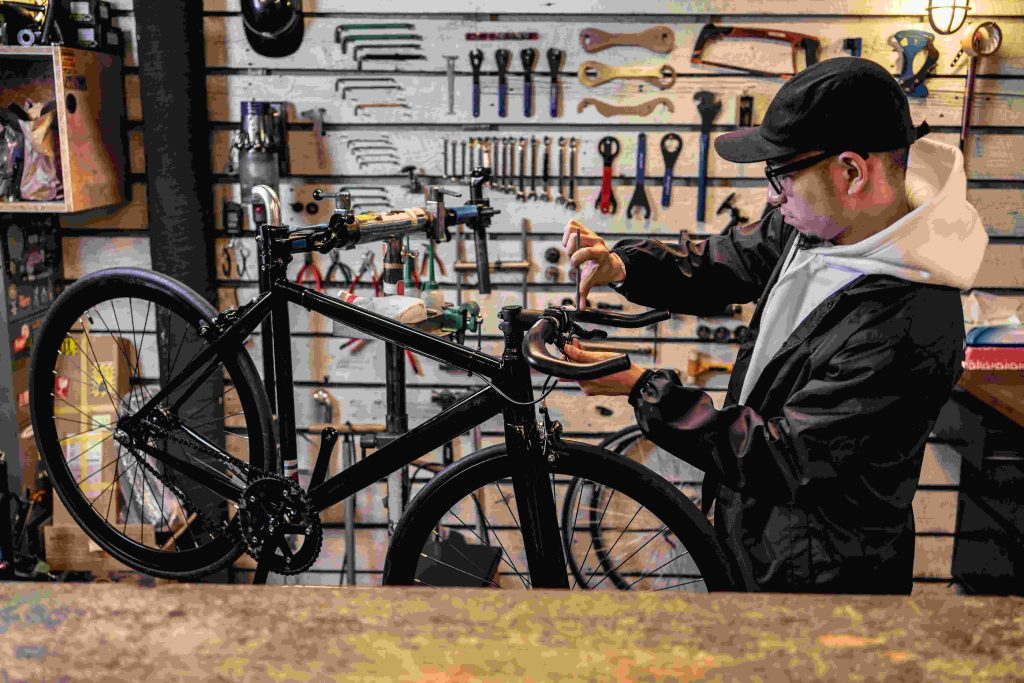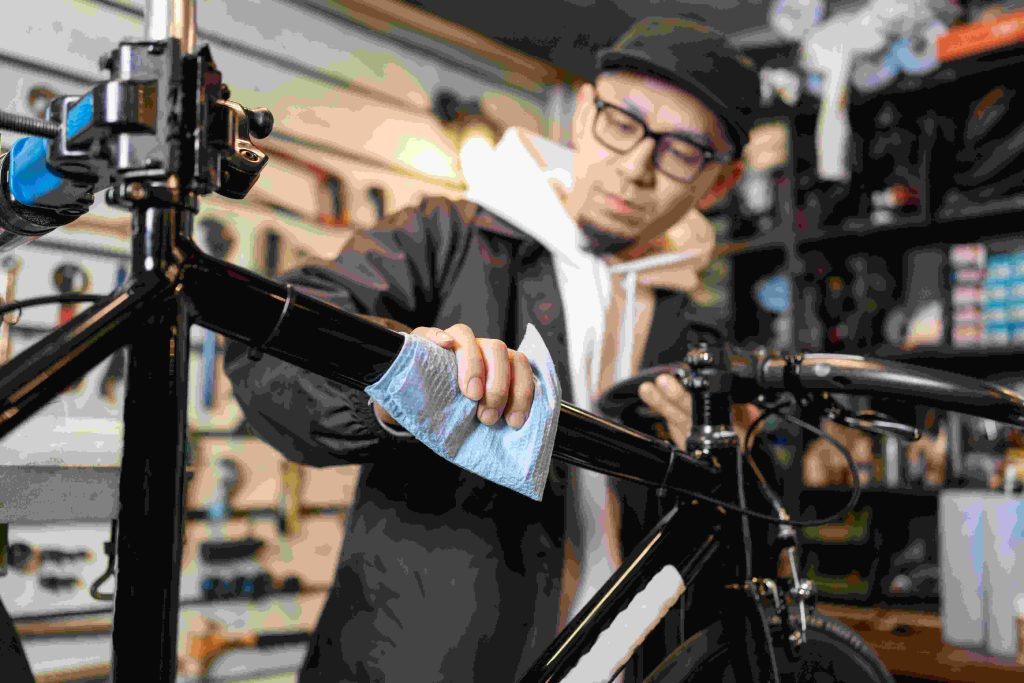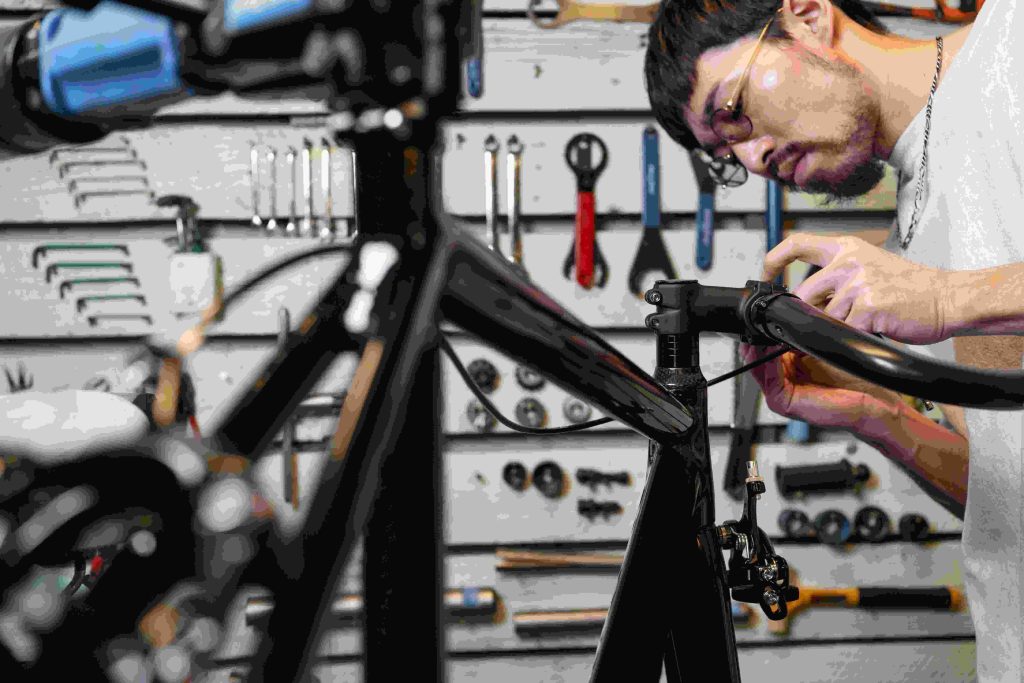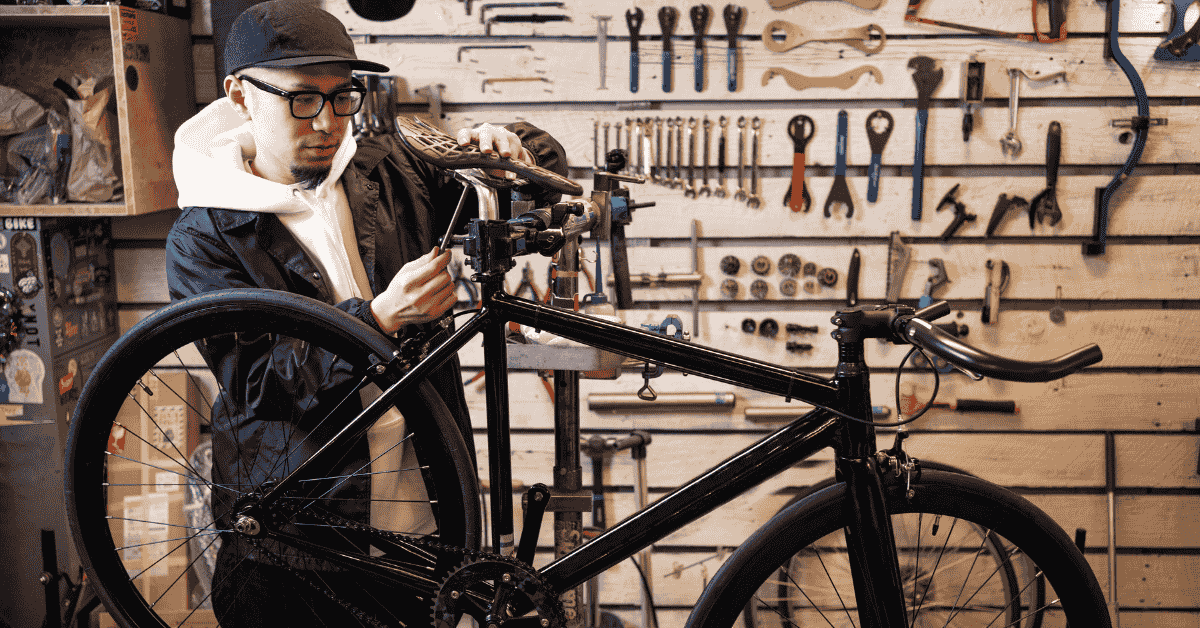Wondering how much is a bike tune-up? You’re not alone. Whether you’re a casual cyclist or a dedicated rider, maintaining your bike in peak condition is key to ensuring your safety, performance and longevity. However, with so many different kinds of tune-ups and prices, the real cost of bike maintenance can be a little confusing. In this article, we will discuss what you should expect to know about the bike tune-up price, what’s included in that price, and when you should schedule one.
Reference: This guide is informed by insights from experienced bike mechanics and real-world shop pricing across multiple U.S. cities, including New York City.
What Is a Bike Tune-Up?
A bike tune-up is a routine maintenance process that helps keep your bike running smoothly and efficiently. These include things like making adjustments, cleaning, and inspecting critical components — basically, making sure everything is up to snuff.

Why Is a Tune-Up for Your Bike Important?
Taking timely maintenance further improves the performance of your bike while riding making it safe and comfortable. You minimize breakdowns and accidents by keeping the brakes, gears, tires, and other components in good working order. Additionally, a properly cared for bike has a longer life too, which means no expensive repairs in the future.
Guide to Bike Tune-Up Costs
Let me explain; when you ask how much is a bike tune-up, remember that prices may vary based on the service and what type of bike you own. We’ll break down the three types of tune-ups below, along with their price ranges.
Basic Tune-Up: $50–$75
A basic tune-up is appropriate for bikes that are in relatively good shape but require a little bit of maintenance. A mechanic performs a basic tune-up by:
- According to your tires‘ PSI, you‘ll be filling with air or releasing air.
- Keeping it well lubricated will allow for smooth shifting and will not wear as fast.
- Optimize brakes and gears to ensure proper functioning.
- Give the bike a once-over for obvious faults like loose bolts or worn down parts.
This type of service is great if you haven’t ridden your bike in a while or need a quick check up for light maintenance.
Standard Tune-Up: $75–$100
For regular or performance-issues cyclists, a standard tune-up is a step up. A typical tune-up will include all the basic services, plus:
- True the wheels so they are properly aligned, preventing wobbles for a better ride.
- Check to see that the bike’s pedaling system — including the chain and gears — is functioning smoothly.
- Inspect and adjust the headset, bottom bracket, and hubs for excess wear or damage.
This is suggested if you have been riding your bike a lot and will fix minor things that might be hurting performance.
Full Tune-Up: $100–$150+
A full tune-up is the most extensive type of service, and it’s appropriate for bikes that have experienced heavy use or need more attention. Besides all the item listed above for a standard tune-up, a full tune-up usually includes:
- Drivetrain full maintenance, cleaning and lubrication of all system.
- Inspection and adjustment of bearings (headset, bottom bracket and wheel hubs).
- Replaces things like brake pads, cables or chain that is worn out.
- A full tune-up also includes a thorough cleaning of the bike frame, drivetrain, and hubs to remove built-up dirt and grime, which helps prevent long-term wear.
It is not uncommon for bikes ridden regularly in harsh environments or bikes that have been stored without servicing to require this level of service. It’s an investment that will keep your bike running better, longer.

How Often Should You Get a Bike Tune-Up?
How often you will need to tune your bike largely depends on how frequently you ride it. Here are some symptoms to watch for that suggest it’s time to make an appointment for a tuneup:
When You Know It’s Time for a Bike Tune-Up:
- Hard to change gears: If your gears aren’t changing properly or skipping, it could be that the cables need adjusting or that the derailleur is misaligned.
- Poor brake performance: If your vehicle’s brakes feel weak, spongy, or unresponsive, have them inspected right away, as this issue directly affects your safety.
- Strange sounds: Squeaks or grinding noises from your bike might indicate that your chain, wheels or other components need maintenance.
- Tire or chain wear: A worn tire or a loose, rusted chain is a call for maintenance.
How Much Does Monthly Bike Maintenance Cost?
For frequent riders, basic upkeep like chain lubrication, tire inflation, and brake checks can cost around $10–$20 per month if done DIY, or more if handled by a professional.
A tune-up every 6 months to 1 year is recommended for most cyclists. But for regular riding or in rougher conditions (mountain biking, for example), more frequent tune-ups may be warranted.
What’s Included in a Bike Tune–Up?
When you’re wondering “how much is a bike tune up”, an of course clarify exactly what that price does start. Here’s a list of typical services provided at each level:
Basic Services:
- Tire Pressure Test: Keep on top of tire pressure, ensuring proper inflation, which will protect you from a flat, as well as improve safety and efficiency.
- Chain Lube: Protects against rust and allows for smooth shifting.
- Brake Adjustment: Adjusts brake pressure to provide superior stopping power
- Gearing: Keeps your gears shifting well.
Full Tune-Ups (Standard & Extended)
- Wheel Truing: Adjusts the alignment of your wheels so that it spins right.
- General Drivetrain: Such as checking the condition of the chain, cassette and other parts of the drivetrain.
- Bearings: Inspects the bearings of the bike for wear (e.g., hubs, headset, bottom bracket).
- Bike Deep Cleaning: Specially cleaning your bike, mostly the drivetrain of your bike for preventing wear and tear.
Additional Costs:
- Part Replacements: If you are in need of replacing anything like brake pads, cables or chain, this will most likely come with an additional charge for parts and labor.
DIY Versus Professionally Done Bike Tune-Ups
You can perform some bike maintenance at home, but a professional bike tune-up is always the way to go to make sure everything is adjusted properly.
Pros of DIY Maintenance:
Things such as cleaning your bike, lubing the chain, and inflating your tires can now be done at your own house, saving you both time and money.
When to Hire a Professional:
- Complex setups: If your issue lies within the drivetrain, brakes, or wheels, a professional mechanic is qualified to make the necessary adjustments.
- Part Replacements: Some major components such as the chain, derailleur or bottom bracket is probably best to have a pro take care of so you don’t make a mistake.

How Much Should You Pay for a Tune-Up?
Now that you’re more familiar with the ins and outs of a bike tune up, let’s dive into its cost and ask the dreaded question — is it worth spending that money? The answer is yes. Regular tune ups prevent problems from becoming expensive repairs, and ensure your bike runs smoothly.
A well-maintained bike is safer to ride, lasts longer, and performs better. Keeping your bike properly tuned on a routine basis can ultimately save you money in the long run by avoiding major issues down the road that necessitate costly repairs or potentially even replacing your bike entirely.
Conclusion: How Much Is A Bike Tune-Up?
Therefore, how much is a bike tune-up? In cities like NYC or boroughs such as Brooklyn, bike tune-up prices may fall on the higher end of the $50–$150+ range due to increased labor and shop overhead costs. Always check with your local bike shop for exact pricing.
A basic tune-up is great for light maintenance, while a full tune-up can address serious bike repairs. Getting regular tune-ups will not be more than a small price to pay and considering the performance and longevity you will gain, it is always worth the money. If you haven’t had one in a while, it may be time to put your bike in at your local bike shop for a tune-up.
